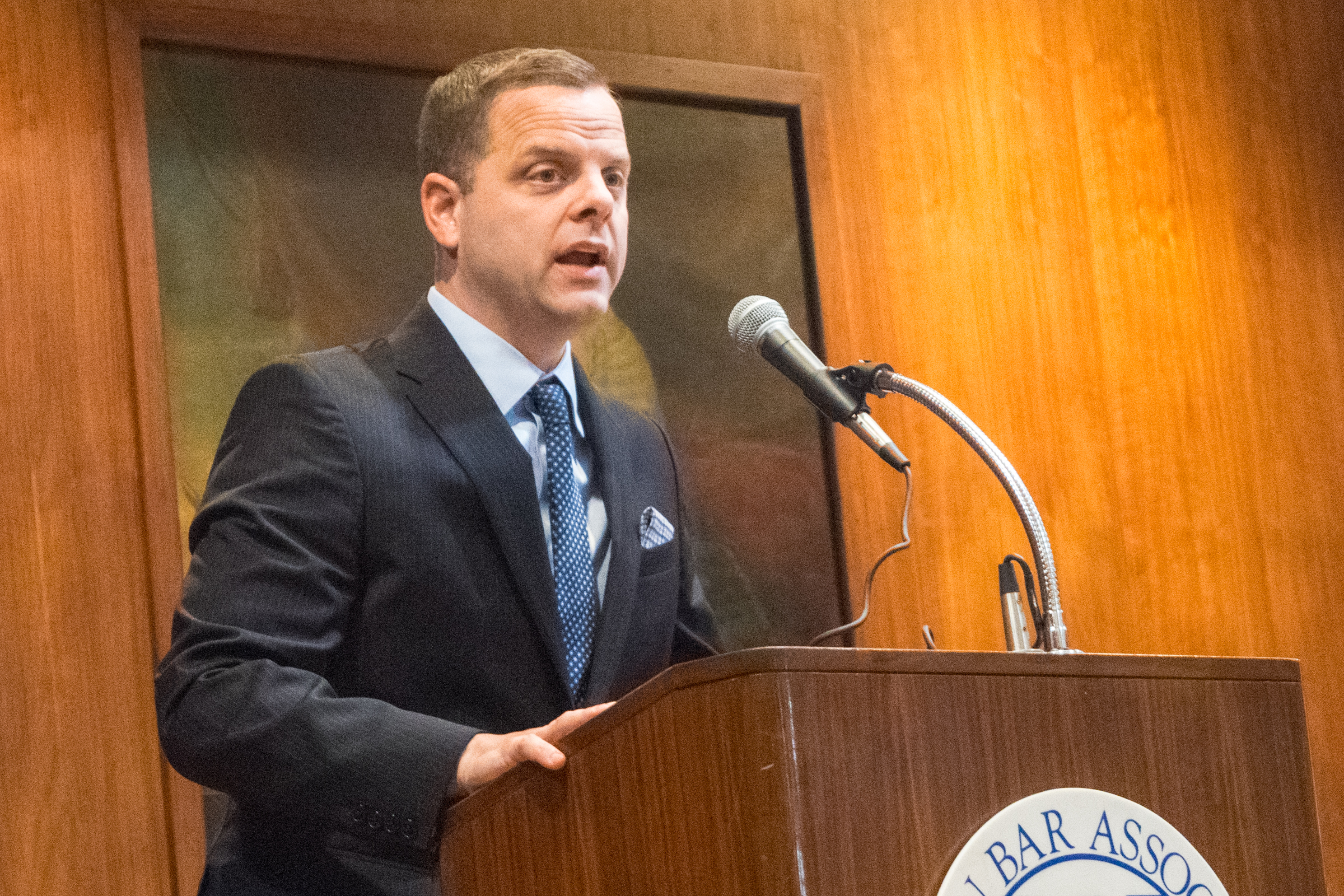Trial lawyer gives tips on how to give a winning summation at Brooklyn Bar Association

The Brooklyn Bar Association and the New York State Academy of Trial Lawyers hosted a continuing legal education seminar in Brooklyn Heights on Feb. 27 with trial attorney Chris Holbrook titled “Summation: The Final Battle.”
“Chris is a partner at Schwartzapfel Lawyers where his practice focuses on negligence cases with catastrophic injuries and wrongful death,” said Kate Langlois, deputy director at the NYS Academy of Trial Lawyers. “He sits on the Academy’s board of directors as one of our deans and oversees our CLE program.
“Chris gives generously of his time every year doing a full statewide tour on various skills and tonight’s course is a continuation on that series,” she added.

Brooklyn Heights
View MoreRead the Brooklyn Height's Press and Cobble Hill News. Find out more about Brooklyn Height's History here.